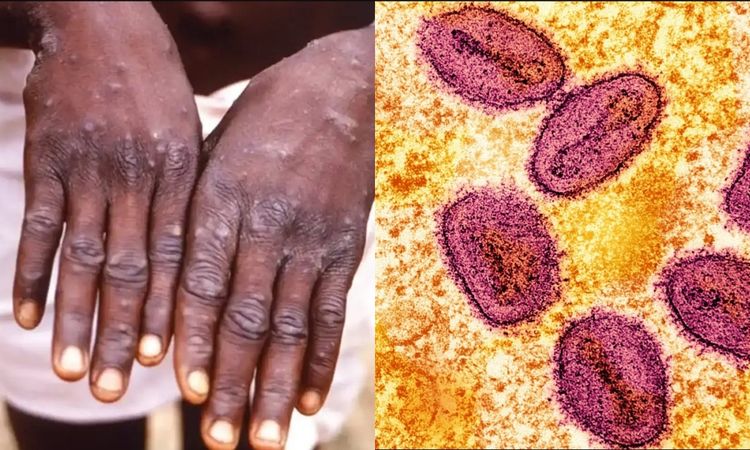Malaysia reports new mpox case in man without recent international ...

Singapore has announced new measures to combat the spread of the deadlier mpox clade 1 strain, as concerns mount over its potential impact.
At a press conference on Wednesday, Health Minister Ong Ye Kung revealed that the mpox vaccine JYNNEOS will be offered to two key groups: healthcare workers at high risk of exposure and close contacts of confirmed cases.
The announcement comes as the World Health Organization (WHO) declared mpox a global public health emergency for the second time in two years due to the resurgence of clade 1 cases in Africa.
Minister Ong emphasized that while there is limited data on the virus, the government has sufficient information to implement precautionary measures. “We do not have full information on the characteristics of this virus, but we have good information on how it behaves,” he said. Ong added that Singapore’s response plan would remain flexible and adapt as the global understanding of the virus evolves.
Response Measures and Border Controls
As part of a whole-of-government approach, the Ministry of Health (MOH) has coordinated a comprehensive public health strategy to prevent the spread of mpox clade 1 in Singapore.
While no direct flights connect Singapore to countries experiencing mpox outbreaks, temperature and visual screening measures have been put in place at Changi and Seletar airports for travellers and crew arriving from affected regions. Screening at sea checkpoints has also been implemented for ships from mpox-affected areas.
Travellers are required to report any mpox-related symptoms (such as fever or rash) and provide travel history via the SG Arrival Card. Those displaying symptoms will be assessed by medical professionals at the borders and referred to hospitals if necessary.
Vaccination Strategy and Quarantine
The JYNNEOS vaccine, previously approved in Singapore for both smallpox and mpox, will be offered to two key groups. Healthcare workers at the National Centre for Infectious Diseases (NCID) and other high-risk facilities will be provided with pre-exposure prophylaxis, in addition to existing infection control protocols. Close contacts of confirmed mpox cases will receive a single vaccine dose within 14 days of exposure during their 21-day quarantine period. The MOH has assured that the current vaccine supply is sufficient to meet the needs of these priority groups.
MOH highlighted that a “significant” portion of the population—those born before 1981—may already have some immunity due to mandatory smallpox vaccinations administered in Singapore until that year.
Detection, Isolation, and Treatment
MOH has instructed all healthcare providers to be vigilant and promptly report any suspected mpox cases, especially those involving clade 1.
Suspected cases will be referred to designated hospitals for further assessment and testing, with paediatric cases directed to KK Women’s and Children’s Hospital and adult-child family groups to National University Hospital. Confirmed clade 1 cases will be isolated in healthcare facilities until they are no longer infectious to prevent further community spread.
Testing for mpox involves polymerase chain reaction (PCR) testing conducted at the National Public Health Laboratory. While there are no rapid point-of-care test kits available, cases are managed through supportive care. For severe cases, antivirals such as Tecovirimat may be used, aligning with treatment protocols in other countries.
Community Measures and Mask-Wearing
Based on current data, the virus spreads mainly through close physical contact, such as within households. Therefore, mask-wearing for the general public is not recommended unless there is significant evidence of respiratory transmission. MOH has stated that if respiratory spread becomes a concern, measures such as mask-wearing on public transport or in crowded indoor spaces may be considered.
In settings such as preschools and schools, existing infectious disease protocols—such as visual screenings for symptoms and hygiene measures—will continue to be implemented to control any potential spread. Additionally, MOH, in collaboration with the Ministry of Manpower and the National Environment Agency, has begun wastewater testing at migrant worker dormitories and the Onboard Centre to detect any presence of mpox.
Ongoing Surveillance and Preparedness
MOH will continue to work closely with international counterparts to monitor the evolving mpox situation. Border measures, detection protocols, and vaccination strategies will be adjusted as needed to safeguard Singapore’s public health.
As of now, Singapore has not detected any clade 1 cases, with all 14 mpox cases this year involving the less severe clade 2 subtype. However, Minister Ong stressed the importance of vigilance, particularly in protecting vulnerable groups such as children and the immunocompromised, should clade 1 reach Singapore.
“Our best course of action is to suppress the spread, provide proper treatment, and have an effective vaccination strategy in place,” Ong said. Despite the concern surrounding mpox, Ong reassured the public that it is unlikely to cause the level of disruption seen during COVID-19.

















































